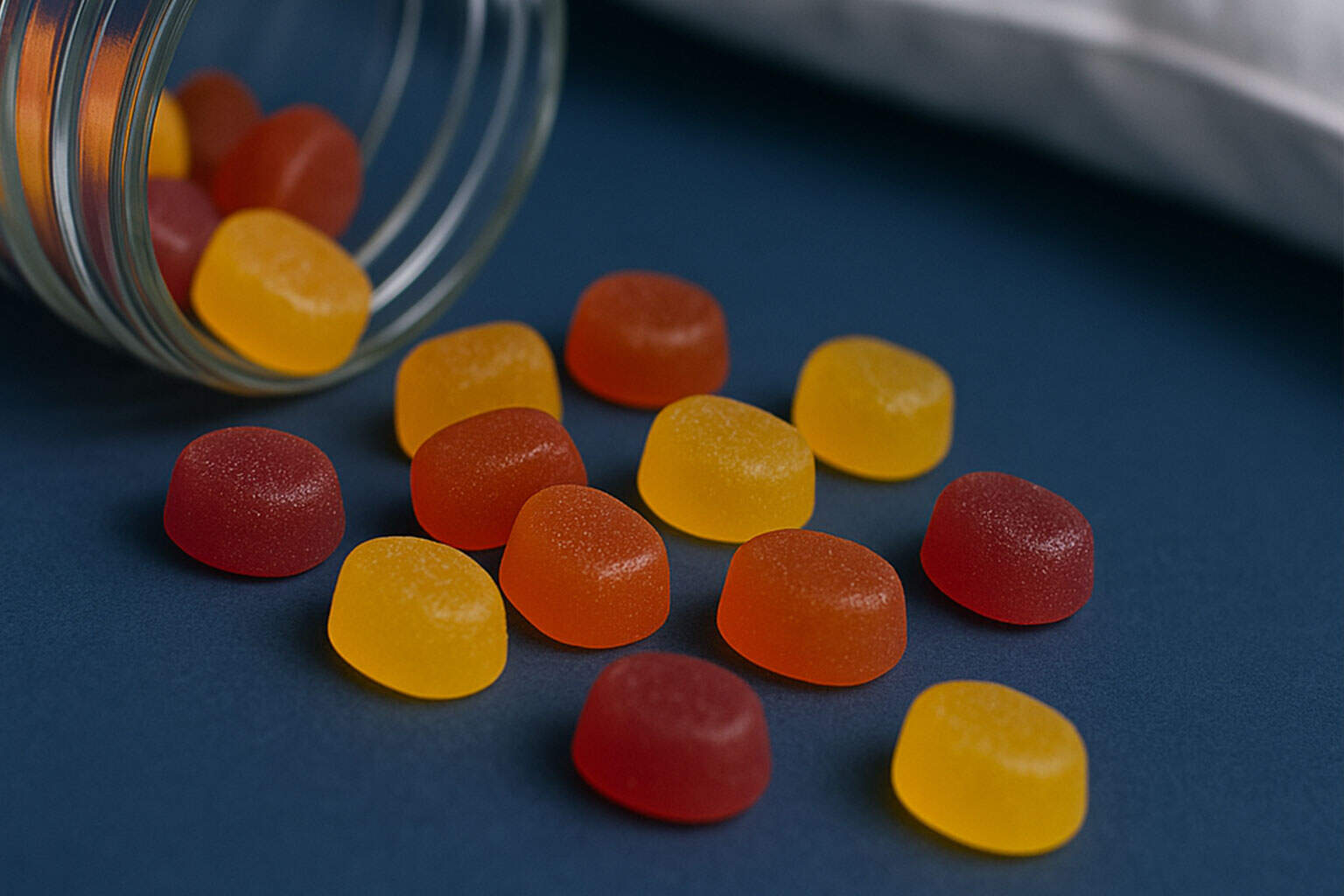
Sleep is a critical pillar of health, influencing everything from immune function to cognitive performance. In an increasingly sleepless world, many turn to supplements like sleep gummies for help.
But do sleep gummies work, or are they simply a sugary placebo? This article dives into the science behind sleep gummies, what ingredients are most commonly used, and whether these popular supplements are a worthy addition to your nightly routine.
Sleep gummies are chewable dietary supplements designed to promote sleep. Unlike traditional capsules or tablets, they’re flavored and often resemble candy in appearance and taste. While formulations vary by brand, the most common active ingredients include:
Melatonin – a hormone that regulates the sleep-wake cycle
5-HTP (5-hydroxytryptophan) – a precursor to serotonin, often used to promote relaxation
L-theanine – an amino acid found in tea, known for its calming properties
Herbal extracts – such as chamomile, lemon balm, and valerian root
The appeal of sleep gummies lies in their convenience and palatability, but whether they work depends largely on the ingredients, dosing, and individual factors.
Melatonin is the most studied ingredient in sleep supplements. Produced naturally by the pineal gland, melatonin secretion increases in the evening and helps cue the body that it’s time to sleep. Jet lag, screen exposure, and shift work can disrupt melatonin production, leading many to seek it in supplement form.
Multiple studies suggest that melatonin can be effective in reducing sleep latency (the time it takes to fall asleep), especially for those with circadian rhythm disorders or delayed sleep phase syndrome. However, for otherwise healthy individuals, the benefits may be modest.
This raises the question: do sleep gummies work for the general population? Research indicates that melatonin can help, but the effect size is often small and highly individual.
Another popular ingredient is 5-HTP, which is converted into serotonin in the brain—a neurotransmitter associated with mood and sleep regulation. Some research supports 5-HTP’s ability to increase REM sleep and improve sleep quality, particularly in individuals with depression or anxiety.
However, 5-HTP’s effectiveness can vary based on how it’s metabolized. Additionally, when combined with other serotonergic substances, there’s a risk of serotonin syndrome—a potentially dangerous condition. Always consult a healthcare provider before combining 5-HTP with antidepressants or other mood-related medications.
Many formulations include additional compounds aimed at enhancing relaxation and easing the transition to sleep:
L-theanine – Promotes alpha brain wave activity and may reduce anxiety
Magnesium – Plays a role in GABA activity, which has a calming effect on the brain
Valerian root – Shown in some studies to reduce sleep latency
Chamomile – Long used as a herbal remedy for insomnia, though evidence remains limited
Together, these ingredients may work synergistically, but their individual efficacy often depends on dosage and formulation.
While the active ingredients may be similar across various supplement types, the gummy format offers unique pros and cons:
Pros:
Easier to take for those who dislike swallowing pills
Often flavored and pleasant to consume
May encourage more consistent use
Cons:
May contain added sugars or artificial dyes
Stability and absorption of active ingredients may vary
Not suitable for individuals with dietary restrictions (e.g., vegans, diabetics)
The question do sleep gummies work compared to pills or capsules is largely a matter of preference and individual absorption differences. However, gummies are generally comparable in efficacy if properly formulated and dosed.
When evaluating whether sleep aids are appropriate, it’s important to consider how much sleep one actually needs. According to expert consensus on how much sleep do you need by age, adults typically require 7–9 hours per night, while teenagers and younger children need significantly more. If you’re chronically sleep-deprived, supplements alone are unlikely to address the root cause.
Instead, sleep hygiene, stress management, and lifestyle adjustments should be prioritized alongside supplementation when necessary.
Many consumers search for the best sleep gummies, but few products are backed by rigorous clinical trials. Label transparency, third-party testing, and evidence-based dosing are essential markers of a quality supplement.
Look for brands that disclose ingredient amounts and avoid proprietary blends. The best products will also be free of unnecessary fillers and align with your dietary preferences (e.g., gluten-free, non-GMO, vegan).
One of the most common questions surrounding these supplements is whether the body builds tolerance over time. For melatonin, tolerance is less of a concern compared to pharmaceutical sleep aids like benzodiazepines. However, some users report diminished effects with nightly use.
The long-term safety of other ingredients, such as valerian or 5-HTP, is less well studied. Using sleep gummies occasionally rather than nightly may reduce the risk of dependency or reduced effectiveness. More importantly, recurring insomnia may warrant medical evaluation rather than chronic supplementation.
Do sleep gummies work? Yes, they can be effective, particularly for mild sleep issues or circadian rhythm disruption, but results are highly individual.
Melatonin and 5-HTP are commonly used and supported by moderate scientific evidence.
Other ingredients like magnesium, L-theanine, and herbal extracts may provide added benefit but are less rigorously studied.
Gummies offer a convenient, pleasant alternative to capsules, though they may contain added sugars.
Long-term use should be approached cautiously and supplemented with good sleep hygiene.
Most sleep gummies begin to take effect within 30 minutes to an hour, depending on the ingredients and individual metabolism. Melatonin, for example, typically reaches peak levels in the bloodstream within 60 minutes.
It can. Many users report feeling drowsy or relaxed after taking a sleep gummy, particularly if it contains melatonin or 5-HTP. However, the effectiveness varies from person to person.
Long-term use may lead to reduced sensitivity or dependency, especially if you rely on them instead of addressing underlying sleep issues. While occasional use is generally considered safe, consult your healthcare provider for persistent sleep problems.
Yes, sleep gummies sold in the UK can be effective, especially those that include ingredients like melatonin (which is available only via prescription in the UK). Over-the-counter formulations with herbal ingredients or 5-HTP are more common.